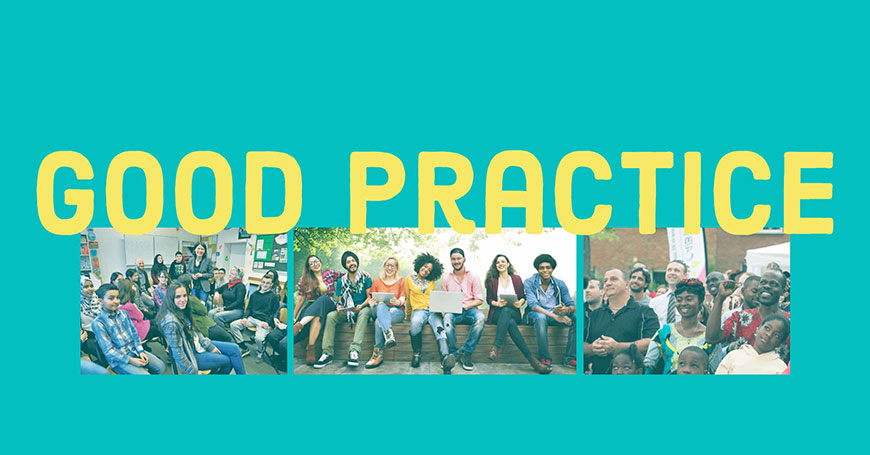Intercultural cities: good practice examples

The first step is the adoption (and implementation) of strategies that facilitate positive intercultural encounters and exchanges, and promote equal and active participation of residents and communities in the development of the city, thus responding to the needs of a diverse population. The Intercultural integration policy model is based on extensive research evidence, on a range of international legal instruments, and on the collective input of the cities member of the Intercultural Cities programme that share their good practice examples on how to better manage diversity, address possible conflicts, and benefit from the diversity advantage.
This section offers examples of intercultural approaches that facilitate the development and implementation of intercultural strategies.
Roma Strategy for the Bradford District (2021-2025)
Purpose: The aim of the Bradford District Roma Strategy is to improve engagement between statutory public services and the Roma community – through working with the community. Stimulus/Rationale:...
Structural Racism in Bergen. Provoking debate, enabling understanding and stimulating action through research on structural racism in Bergen
Purpose: The research initiative “Structural Racism in Bergen” was undertaken by Bergen Municipality to understand how minority ethnic populations perceived the way they were treated by the city’s...
Migrant stories
Purpose: During COVID, the City of Erlangen, Germany, made a point of uplifting the stories of contributions by people with migrant backgrounds via their website and communications. These ranged...
Improving equality data collection in Belgium
The equality data strategy responds to the imperative for a precise picture of reality, an evidence base, to be available if policy solutions to inequality are to be effectively designed and...
A welcoming app
Purpose: The Portuguese Network of Intercultural Cities (RPCI) has developed an app called Portugal Incoming. The app launched in 2019 is a major practical contribution to the integration of...
Promoting cultural participation and equal access to culture in Neuchâtel
This action promoting cultural participation was implemented in the frame of the intercultural strategy of the canton of Neuchâtel, which is based on the recognition of diversity, equality,...
The Leeds Learning Alliance
The Leeds Learning Alliance (LLA) is a consortium of organisations formed in 2019 by a group of leaders, aiming to improve education in Leeds, United Kingdom (UK). The Alliance is unusual in the UK...
Reducing barriers to naturalisation through information campaigns
The Zurich City Council is concerned that as many Zurich residents as possible should be able to participate in the direct democratic process. The more people participate, the more alive democracy...
Auckland’s minority advisory bodies
Purpose: Advisory bodies in Auckland to represent cultural minorities and deal with diversity matters. Stimulus/Rationale: The Independent Māori Statutory Board (IMSB) is mandated through...
Auckland’s intercultural elections
Purpose: Initiatives to encourage minority communities to engage in political life. Stimulus/Rationale: Local elections take place in New Zealand every three years. Since 2016 Auckland’s election...


